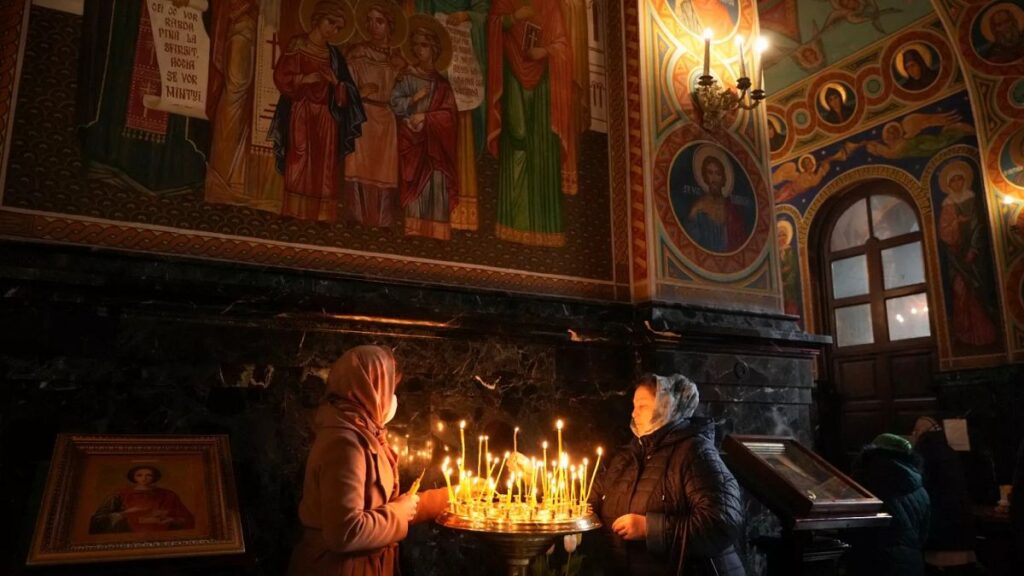By Euronews Romania
Published on
The EU has warned that Moldova has once again become a primary target of Russian disinformation campaigns ahead of 28 September’s parliamentary elections.
Authorities in Chișinău have identified several ways in which Moscow is trying to influence the geopolitical orientation of the country of over 2 million people, most of whom hold Romanian EU passports.
According to Moldovan security experts, one of the tactics employed by Russian hybrid warfare strategists is to use the Russian Orthodox Church, which has a presence in Moldova and is allegedly being used as a tool to spread Moscow’s propaganda and contribute to organising disinformation campaigns.
“At this stage, we have 10 major areas in which Russia is acting and attempting to destabilise the Republic of Moldova and, for example, the use of the church in our country for propaganda and disinformation purposes in the interests of the Russian Federation”, said Daniel Vodă, a spokesperson of the Moldovan government.
The Central Election Commission has already recorded instances in which priests were involved in political propaganda activities. The electoral authority in Chișinău warns that the involvement of the church in the election campaign is contrary to the law and has called on representatives of religious denominations to refrain from political activities.
In Moldova, there is no independent Orthodox Church, as in other Orthodox countries. The Moldovan Church is an autonomous episcopal body under the Moscow Patriarchate ecclesial authority.
According to Andrei Curăraru, an analyst of the NGO WatchDog, the clear objective of Russia is to slow down or permanently halt Moldova’s European accession and keep it within Moscow’s orbit “using this geopolitical weapon that is the Metropolitan Church of Moldova (under the Moscow Patriachate) over the minds and votes of people who frequently attend mass in the Republic of Moldova.”
Is the EU the antintode to Russian propaganda?
Seen from Brussels, Moldova’s upcoming elections will be a crucial date for the future of the country. If pro-Russian parties win the elections and rule the country, negotiations to join the EU are likely to be frozen, in a similar U-turn to Georgia last year.
The current pro-EU Moldovan government has repeatedly asked the EU to decouple the accession negotiations from those with Ukraine in order to obtain a fast-track process.
However, the EU is reluctant to do so in order to avoid sending negative signals to Kyiv.
According to EU Enlargement Commissioner Marta Kos, who was in Chișinău this week, Moldova has fulfilled all the criteria to start accession negotiations.
However, speaking at a press conference, Kos noted: “Moldova did the homework from a technical point of view, which is my responsibility but of course we also need the political support of the member states.”
Several governments remains cautious and ambivalent when it comes to decoupling the Moldovan and Ukrainian enlargement processes.
The EU Council president António Costa said on Thursday in Bucharest that the EU member states agreed to open “pre-accession negotiations” with Moldova after the forthcoming elections.
On 9 September, Moldova’s president Maia Sandu will speak in the EU Parliament in Strasbourg about the dangers and the risks of Russian interference in her country and make a last ditch attempt to persuade member states to give the green-light to starting accession negotiations.
Read the full article here


